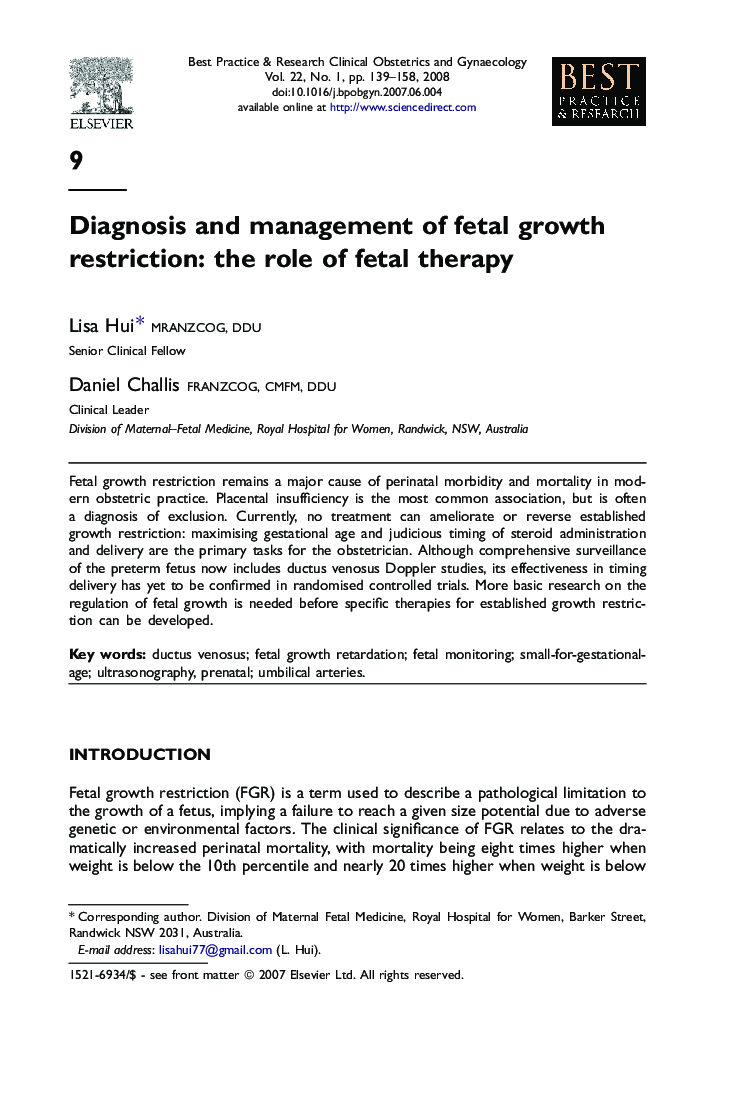| Article ID | Journal | Published Year | Pages | File Type |
|---|---|---|---|---|
| 3908015 | Best Practice & Research Clinical Obstetrics & Gynaecology | 2008 | 20 Pages |
Fetal growth restriction remains a major cause of perinatal morbidity and mortality in modern obstetric practice. Placental insufficiency is the most common association, but is often a diagnosis of exclusion. Currently, no treatment can ameliorate or reverse established growth restriction: maximising gestational age and judicious timing of steroid administration and delivery are the primary tasks for the obstetrician. Although comprehensive surveillance of the preterm fetus now includes ductus venosus Doppler studies, its effectiveness in timing delivery has yet to be confirmed in randomised controlled trials. More basic research on the regulation of fetal growth is needed before specific therapies for established growth restriction can be developed.
